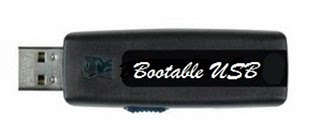Perhaps IE9, which is still under development, end up becoming the best browser of all time. And Mozilla Firefox is getting better with each version - and I really want, I wholeheartedly support the open source development model that Microsoft is doing the catching up to do. But for now I continue with Chrome 6 because it is clean, has a no-frills interface unnecessary and, above all, its speed and stability make browsing the Web easier and more enjoyable. Speaking at speed: most reviews I read say that Chrome is not necessarily faster than its competitors. But I can say from experience it is. This may have something to do with details of setting up my machine or other software I use, but so what? I am very pleased with the Google browser, and because of that I started to look for shortcuts and tricks to make it even better.
Sure, there are a lot of information spread across web, but it costs nothing to centralize what is best. Here are five tips for the tested Chrome that every user should know.1. Customize homepages All browsers allow you to choose the start page, but Chrome will also allow you to select multiple pages to be loaded each time the browser is open. Click the wrench icon in the upper right corner of the browser window, select "Options", "Basic" and select the option that says "Open the following pages. Click the Add button and a window with a list of recently visited sites. Choose the ones that want to open automatically, or enter the address of your favorite site, click Add and ready.
2. Change the default search engine, or add a new Chrome comes with support for several popular search engines besides Google, including Bing, Yahoo etc. To use one, click the wrench icon, then "Options", select the tab "Basic" and in "Standard Search" click on "Manage". Select the search engine you want as default and click the "Make Default".
Add a new search engine to this list is just a bit more difficult. Say you do research on Wikipedia regularly. In that case you can do the following: go to the Wikipedia site and, using the search box on the site, search for anything. With that Chrome will "learn" as the search function on Wikipedia.
From there the following searches become easier. Enter the start address of the site in the address bar and press Tab you'll see that the address bar of your browser shows the phrase "Search Wikipedia". just type a word and hit Enter to see the results. Works on any site you've already done a search, Wikipedia, YouTube, IMDB, even in their favorite blogs.
These new search engines are also immediately available for use as a default mechanism, there in the options window.
3. Restore and switch between tabs It's annoying to close a page by accident and then discover that you do not know how to get back to it. But with Chrome it is easy: Just hit Ctrl + Shift + T. You can reopen until the last 10 closed tabs.
And to switch between several open tabs, like Firefox, hold Ctrl and press Tab to switch from left to right, and Shift + Ctrl + Tab to switch from right to left.
4. Attach a flap in place Favorite bars can be easily crowded, and tabs could end up out of sight if you have several of them open at the same time. But Chrome has a clever trick to keep things in sight: you can "hold" a flap in place, turning it into a small icon that represents the page.
To do this, click the right mouse button on the tab you wish to hold and choose "Check" tab. She is reduced to a single icon and moved to the left corner of the browser window, always visible. To undo the operation, click again with the right tab and choose "Remove" tab.
5. Check the memory consumption of Chrome When Chrome is slow, a solution is to close all tabs but one, and then reopen it (the trick of using Ctrl + Shift + T repeatedly). A more elaborate technique involves using the browser's task manager: press Shift + Esc to make it appear. Look at the "private memory" to see which tabs are consuming more memory and select them in the list and click "End Process".
You can also go deeper into opening a new tab and typing "about: memory" (without quotation marks) into the address bar. This shows not only the memory consumption of Chrome, as well as other browsers (IE, Safari, Firefox) that are also running on your machine.
